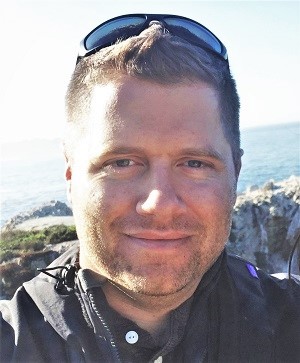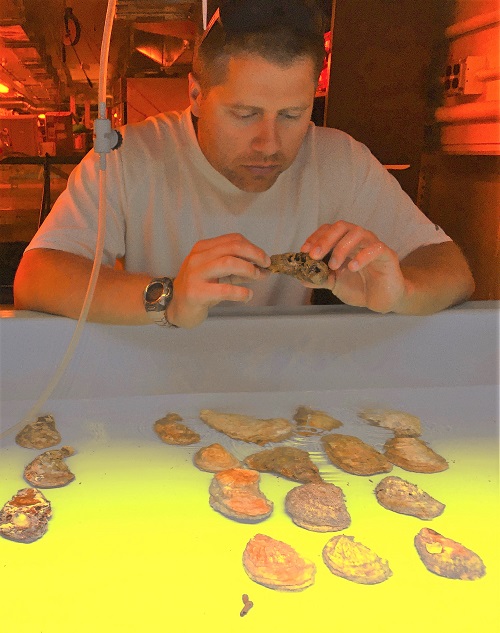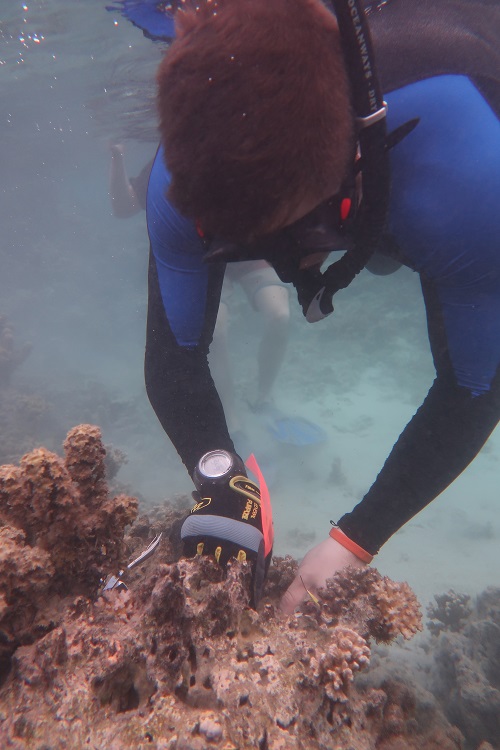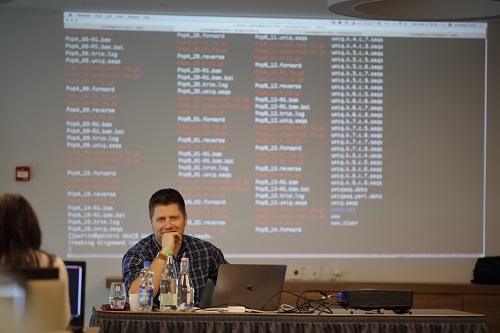About the department: Given that Rhode Island is the Ocean State, it’s no surprise that one of the strengths of the Biological Sciences Department at URI is Marine Evolution. However, the department has strengths across many other biological disciplines, and is an excellent collaborative environment. My lab is based on the main campus in Kingston, but we also have access to the Bay Campus (10 mins away) that’s right on Narragansett Bay with a full sea water facility. One unique aspect of my position is that I share a large physical lab space with two other new PIs, Dr. Hollie Putnam and Dr. Carlos Prada. It’s great to build a large shared molecular and wet lab space together as well as collegial and synergistic lab environment for our students.
About the research: Coastal ecosystems face a complex of stressors that span temporal and spatial scales, from long-term global ocean change to localized episodes of coastal acidification. Understanding how marine populations will evolve in response to environmental change requires investigating the synergistic impacts of multiple stressors across all life stages. Our research investigates how natural and anthropogenic processes affect the evolution of marine populations through the lens of larval dispersal. We combine laboratory multi-stressor larval exposure experiments with genomic surveys of natural populations, analyzing patterns of selection and migration using seascape genomic models. Our lab also develops laboratory and bioinformatic methods to facilitate the use of next-generation sequencing in non-model species.
What has been the biggest challenge as a new PI so far? I'm guessing that my answer is similar to all other new PIs: management. I mean this both in terms of managing my own time and responsibilities but also managing my students and employees. I'm always striving to find better ways to stay organized with my time with the primary goal of being able to give more of it to my students, and I will be the first to admit that this has been, for the most part, a trial by fire. This need for management is coupled with a striving and desire to push yourself and your research program further. For example, Evolution in Providence this summer was my first meeting where I brought my lab. It was so close to us that I took both of my PhD students and my lab manager, each of whom presented posters. I also decided that I was going to present a talk, a poster, and the iEvolBio software bazaar. We all pushed ourselves hard, and we had an incredibly successful meeting. However, this max effort left me wiped out for a couple of days. With better planning and management, I'm hoping to limit these over-the-limit kind of days with a more consistent workflow spread out more efficiently over time.
How have you prepared to be a PI? I did a few different postdocs at different institutions which helped, and all of my postdoctoral advisors were great with advice. Rob Toonen, my PhD advisor, and Katie Lotterhos, my final postdoctoral advisor, continue to be sounding boards and sources of advice. Beyond advice and mentorship, some of my best training came from Chris Bird. Chris did his postdoc in the same lab I did my PhD, and when I arrived at Texas A&M Corpus Christi as a postdoc in a different lab, he was in year two of his current faculty position. Being outside of his lab and a friend, I got an intimate look into Chris's new faculty experience, both the positive experiences and many of the challenges. This is definitely a bit of a special situation, but was an incredible training experience. I'd recommend any postdoc try to become friends with a new faculty at their institution, so that they can get this kind of perspective.
When was your first Evolution Meeting, and how did it affect your career? My first Evolution Meeting was Portland, Oregon in 2010, and it will forever have a special place in my heart. This was the first meeting that I attended with my PhD advisor, Rob Toonen. Being a graduate student at the University of Hawaii, it was not always easy or cost effective for both of us to be at the same meeting. After attending several conferences by myself or only with a few other graduate students, having Rob there to introduce me to his colleagues and extend my professional network made the entire conference an incredibly positive experience. This was also the first conference where I presented some of the most novel results from my PhD, and the positive comments, questions, and interactions I had after my talk helped give me the confidence to later submit my first, first-authored manuscript later that year.
Besides research, how do you promote science?I'm still working on setting up local outreach efforts, but I am a regular participant in both Skype-a-Scientist (
www.skypeascientist.com) and the Letters to a Pre-Scientist (
www.prescientist.org) program. I highly recommend both to SSE members as each allows you diversify your outreach audience and share your research with a truly engaging audience.
Do you have a favorite science podcast or blog? My favorite blog is definitely the Molecular Ecologist (
www.molecularecologist.com). I love their paper and topic features, as well as their series on How Molecular Ecologists Work.
What one piece of advice would you give to a postdoc? If you are not happy somewhere, leave. As a postdoc, you're often working without a formal type of contract, and being able to leave a position when you want to is one of the very few benefits of that situation.
Do you remember making any mistakes as a trainee; how did you recover? I made tons of mistakes, and I still make mistakes. I tell my mentees all the time that everyone makes mistakes, but the difference is that intelligent people learn from them and/or figure out the best way to fix them.
What is something most people don’t know about you?In high school, I was a decent classical and jazz trombonist, and I even had an offer to go to music school.
 Jonathan Puritz
Jonathan Puritz

